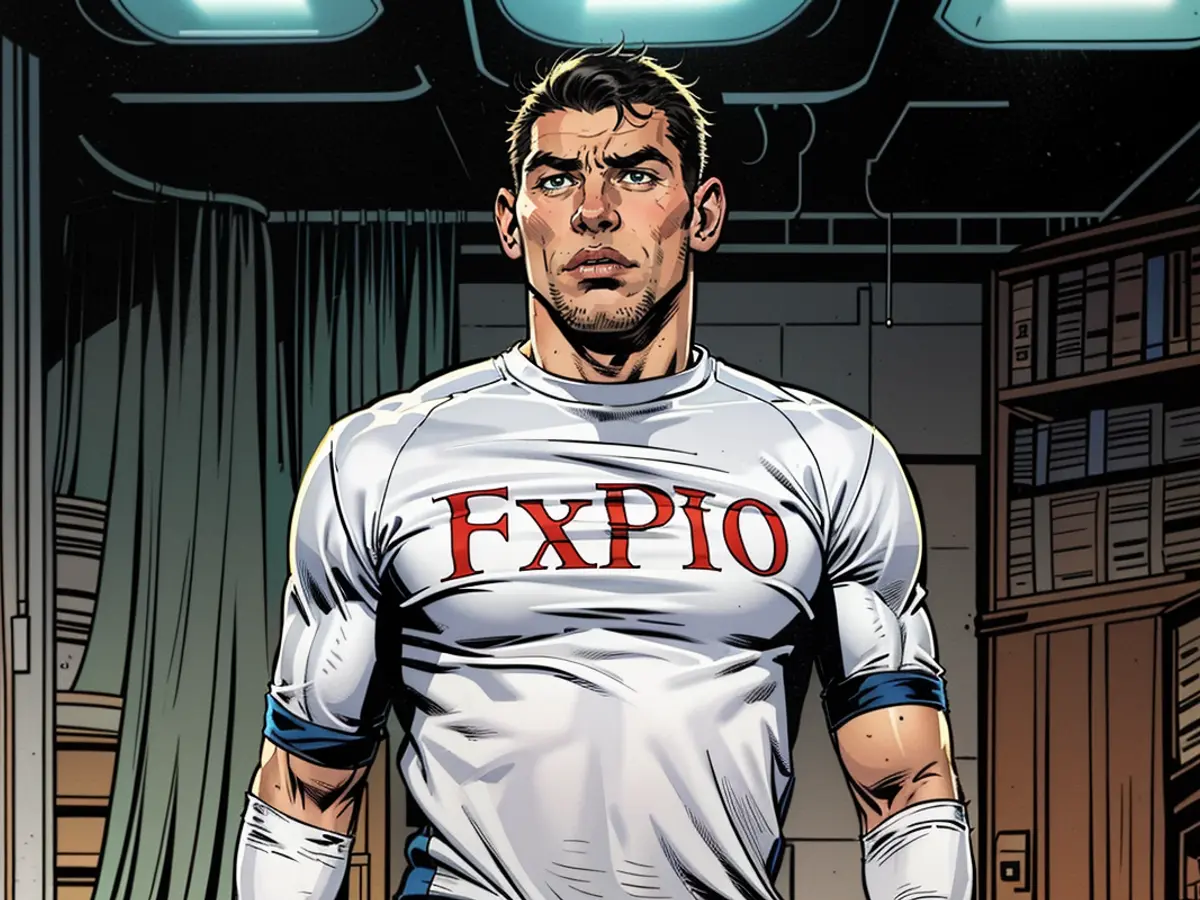Once a soccer phenom graced the field at only 16. By the age of 27, he found himself battling suicidal thoughts.
The prodigious youth, merely 16 years and 65 days old, made his initial splash in possibly the most fierce league globally, coming on as a replacement during the second half for Fulham in a 3-1 triumph in 2007.
This "out-of-this-world" moment seemed to spark a promising soccer career for him, with whispers of him becoming the future captain of England. However, it set off a tumultuous trail that reached its lowest point when he stood on a hotel balcony in Dubai.
"I cut off everyone - my family, my buddies. I felt, 'What's the use? I might as well take this all down with me now because everything I'm feeling will go away,'" Briggs recalls to CNN Sport, reminiscing on his feelings from 2018.
"I was considering jumping, thinking, 'This is it, all the pain will cease.'"
Early Accomplishments
Briggs was a standout player among the youth population in England. His size, speed, and strength were unmatched by his peers, ensuring his frequent play in older age groups. If his teenage years were spent in the United States, he would have been the "star jock."
He was part of Fulham's academy but attracted interest from numerous major English clubs, such as Arsenal. It was at this juncture that Fulham accelerated him to the first team for the final game of the 2006/07 season.
Briggs earned a cameo appearance, stepping onto the field for the last 13 minutes against Middlesborough, etching his name in history.
"I thought I was the new Wayne Rooney when I made my debut, as any kid would," Briggs recalls, referring to the former Premier League star.
"Everyone started treating me like a celebrity, like a well-known figure, but I didn't feel like that myself."
He believed that he would be a consistent first-team member following his senior debut.
Instead, he was reassigned to the youth team, a decision that shattered his confidence.
"I started thinking things I've never done before. I overanalyzed game situations, expected a bad game, and was constantly doubting myself," he says.
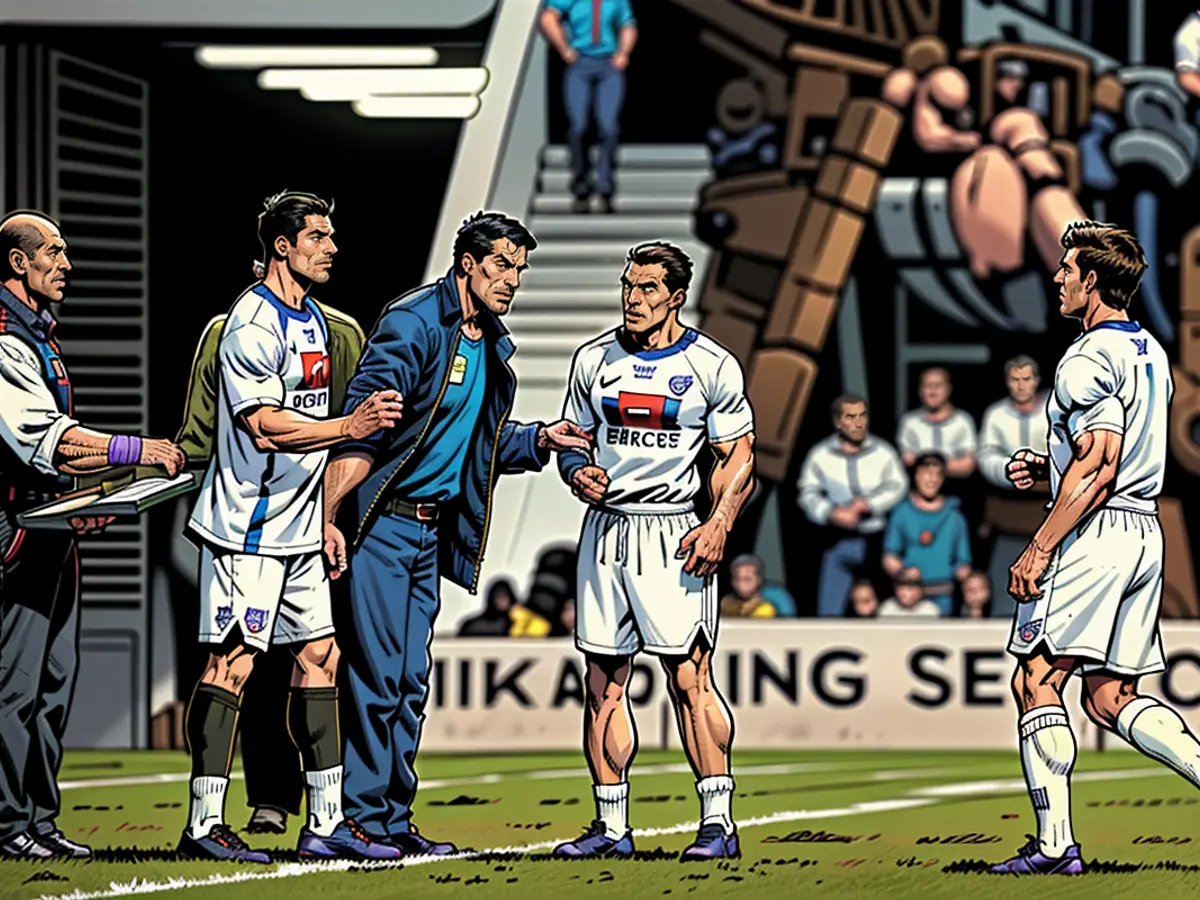
He hid his feelings, as most of his peers did, fearing showing any vulnerability during a crucial period in his career.
Descent
The teenager was essentially leading a dual life. From the outside, Briggs was still radiating self-assuredness, still the next big thing, still the kingpin.
However, things on the pitch weren't improving. Despite loan spells at various clubs, he failed to make an impact.
He eventually left Fulham in 2014, having made only 13 Premier League appearances over the seven years since his debut.
Briggs slid down leagues due to injuries, poor confidence, and worsening mental health battles.
Suddenly, he found himself playing in non-league soccer, a level he never thought he'd compete in.
This realization, coupled with the feeling of lost potential and the misplaced belief of disappointing others, caused him to "explode."
He abandoned soccer for a year in 2018, seeking solace in alcohol and drugs, hoping to recapture the adrenaline he experienced while performing in front of huge crowds.
"Where else can I find this adrenaline? Where else can I go and feel like the bigshot? It was in the nightclubs," he says.
"I knew people would recognize me and I'd feel like the bigshot again."
The drug use eventually escalated to self-medicating his anxiety, depression, and insomnia, causing him to withdraw from soccer and avoid watching the game for fear of what could have been.
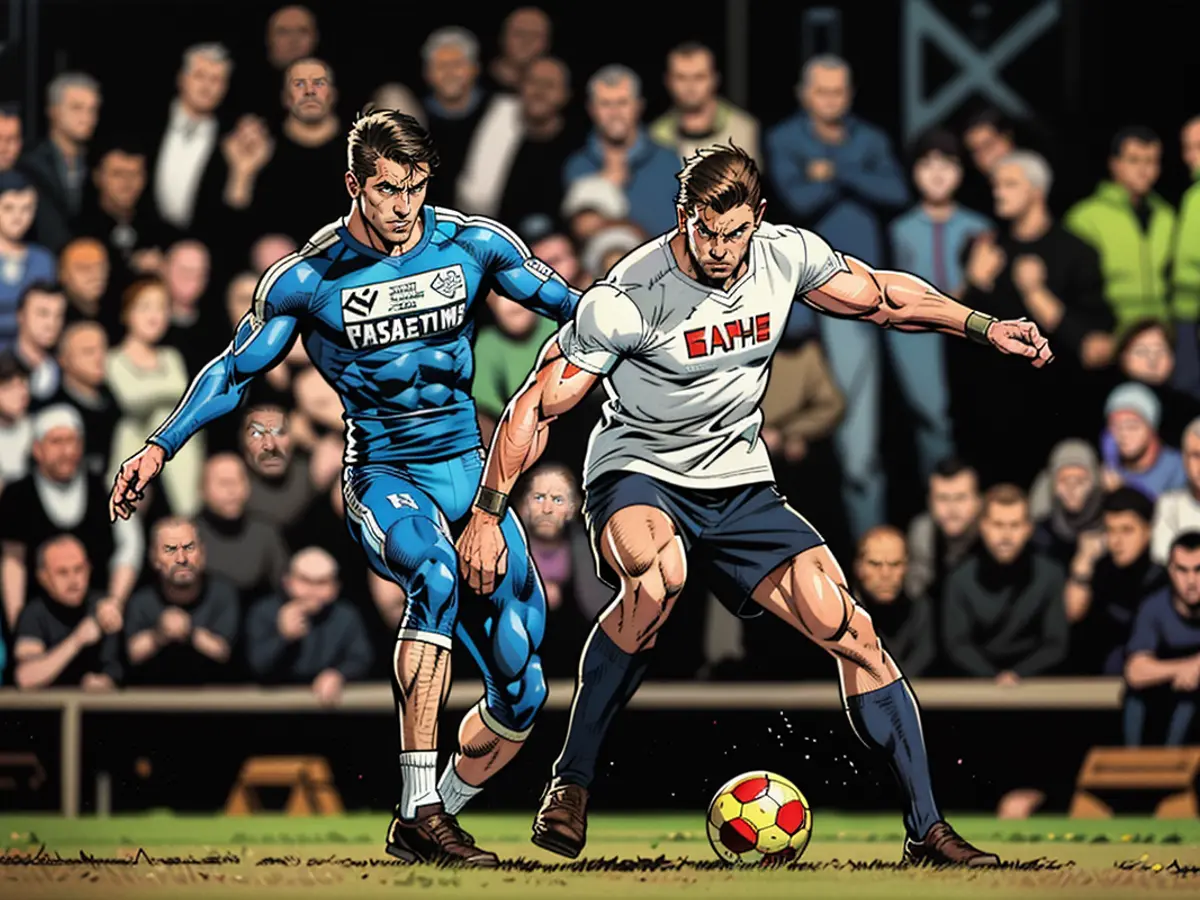
‘Who am I if I'm not a footballer?’
His partying led him to Dubai, where he sought a new soccer club but continued to be rejected. The accumulation of failures and rejections proved too much and left him on his hotel balcony, pondering the value of his life.
"I felt like I was nobody. Who am I if I'm not a footballer?"
Fortunately, he says hotel security intervened, moving him to a room on the lower floor. It's a moment Briggs often reflects back on, expressing gratitude to those who halted him from making the fateful decision.
In the year when he took a hiatus from soccer, Briggs stayed with his uncle. Although he remembers dark days spent isolated in a room, lost in thought, he also credits this period for setting him back on the right path.
His uncle helped him land a construction job, which helped rebuild his confidence while offering a reality check. He wanted more from life and used this inner fire to rekindle his love for soccer.
He began therapy, taking advantage of the resources provided by the Professional Footballers Association (PFA). This time, he learned how to process and address the feelings he had long suppressed.
Briggs also started petitioning his former clubs for another opportunity.
After securing a spot in another non-league team, Briggs had an exceptional season, claiming it was one of the best in his career. Despite being too skilled for that level, the experience rekindled his passion for soccer.
Although he never played for the English senior team – he did represent the English youth teams and the international team for Guyana in 2015 – after a four-year break, he succeeded in convincing the national team to give him another shot.
In 2019, Briggs was part of Guyana's CONCACAF Gold Cup squad and relished the chance to perform on a grand scale. He faced off against the US, Panama, and Trinidad & Tobago, although Guyana ended up last in the group, earning their first-ever Gold Cup point as a bonus.
Briggs's performance caught the attention of the Danish team, HB Køge, offering him a ticket back to professional soccer – a moment he still cherishes.
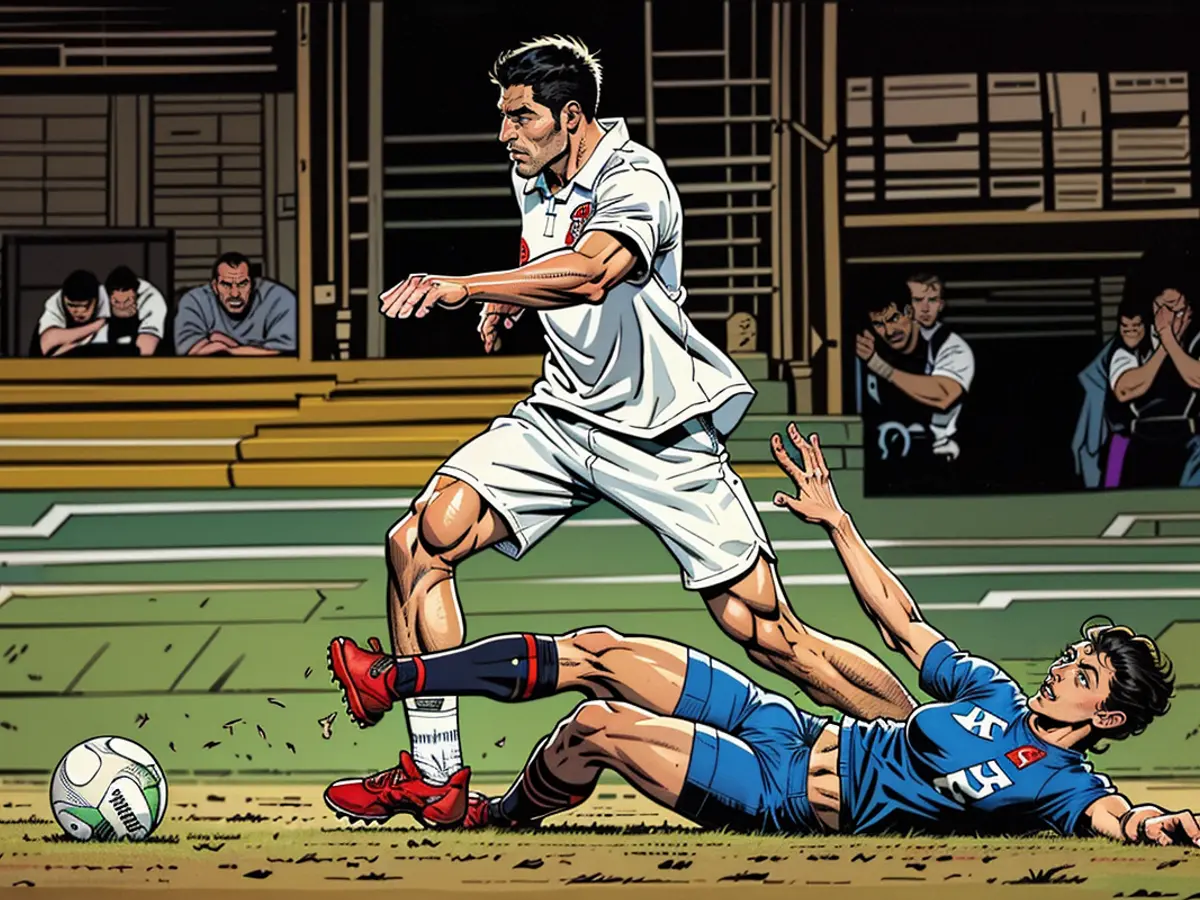
“From giving up soccer completely, contemplating suicide, to subsequently returning to the game and making it back to the professional ranks, it's still something I wear with immense pride,” he says.
“After that, I became the captain of my country. Overall, I'd say that's probably my proudest moment as it demonstrates it's never too late to commence anew.”
Briggs retired from soccer in 2023 due to a series of injuries. Struggling to envision his future post-soccer, he sought support that helped him discover a passion for aiding young soccer players. Today, he's back at Fulham, working with academy players, and offering support to budding stars.
One of his main priorities is teaching teenagers to express their fears and concerns, something he learned late in life. He also focuses on creating an environment where people feel comfortable being vulnerable.
“I was, in essence, a casualty of my own accomplishments. Upon reaching the first team, I became lost in that environment,” he admits.
“These days, when young players achieve their rightful place on the first team, we make sure to maintain that connection with them.”
Briggs acknowledges that his journey isn't entirely extraordinary, as countless young players enter the academy system annually, with only a tiny fraction making it. However, he praises the improvements in support and pastoral care offered now, calling it significantly superior to what he experienced during his youth.
In 2012, the Elite Player Performance Plan (EPPP) was launched by the English Premier League, providing clubs guidance on player care.
“The success of the system is not only measured by the players who advance to the first team but also by the destinations these players reach beyond playing,” said Neil Saunders, the Premier League’s director of football, in 2022.
The PFA also offers support, something Briggs availed of throughout his career.
“We urge players to seek help and utilize the resources at their disposal. The PFA has empathetic, experienced professionals and extensive provisions to help players navigate challenges within and outside the game,” stated the PFA.
Briggs broke the Premier League record for the youngest player for 12 years, before it was surpassed by current Liverpool star Harvey Elliot, who made his debut for Fulham in 2019, and Arsenal’s Ethan Nwaneri in 2022. Breaking his record was described as a “bittersweet” experience, as while he was sad to lose the accolade, he felt relieved of the burden.
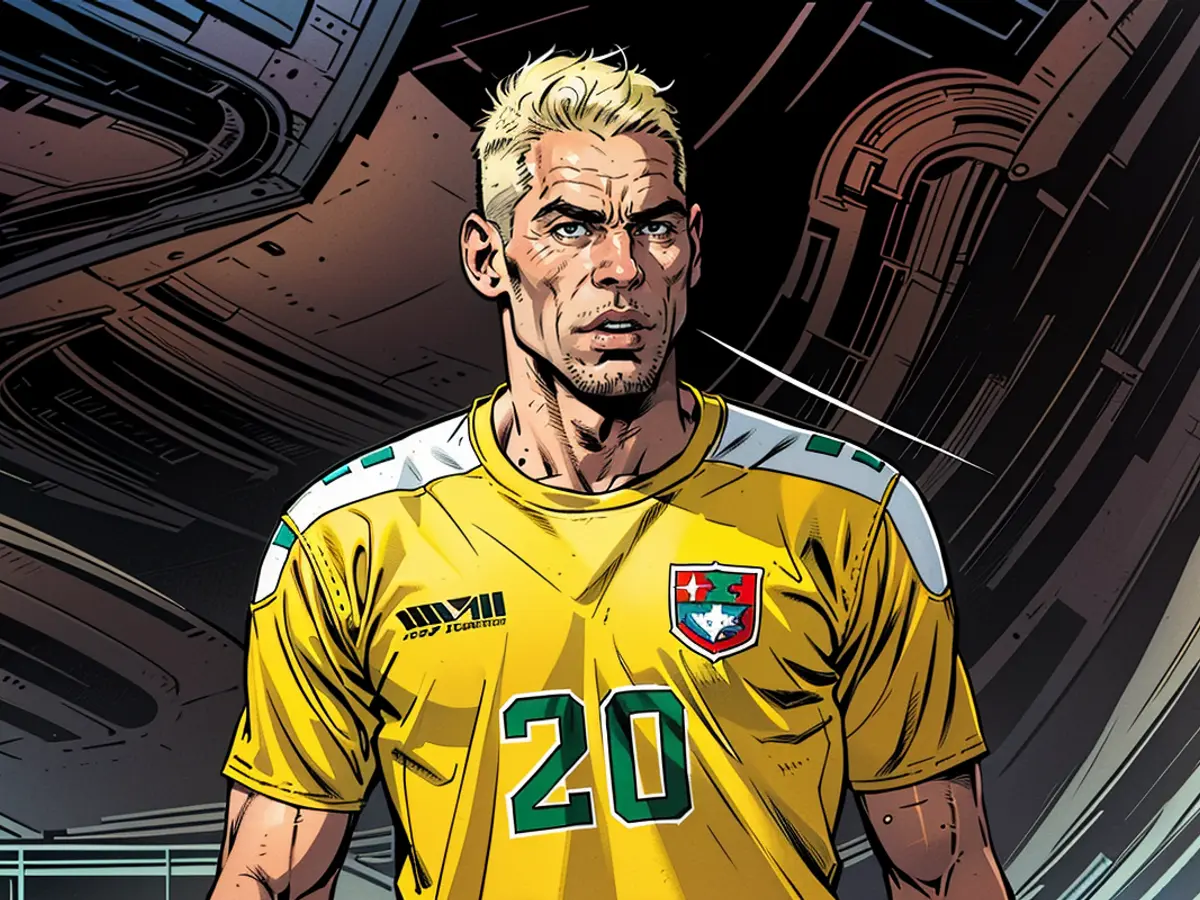
Now, he aims to utilize his story to "assist, inspire, and motivate others.”
Read also:
Despite his early success and promise, Briggs' mental health struggles began to affect his performance on the field. These challenges led him to consider leaving football altogether.
In the midst of his struggles, he questioned his identity, wondering, "Who am I if I'm not a footballer?" This thought echoed in his mind through his descent in leagues and his eventual hiatus from the sport in 2018.
